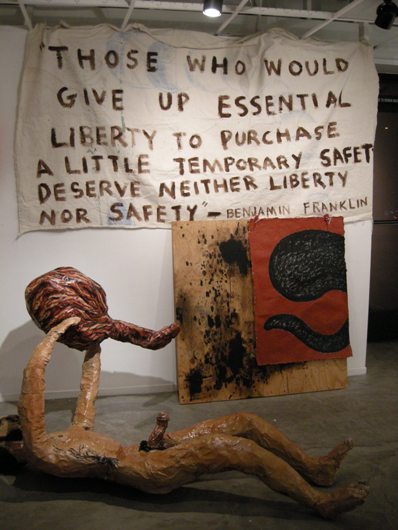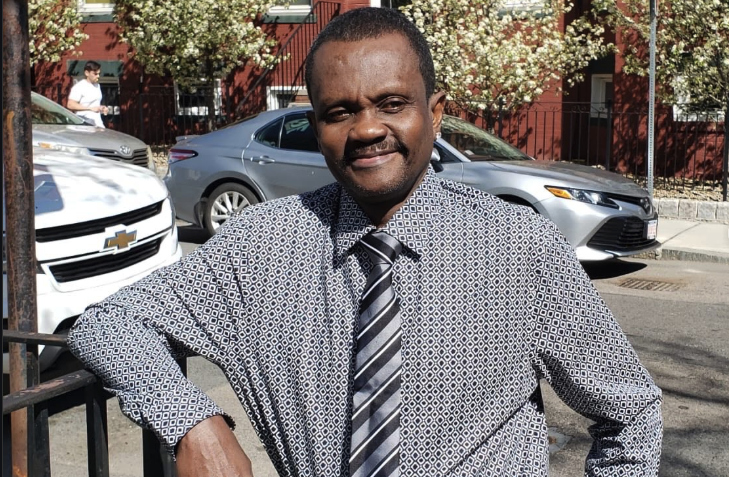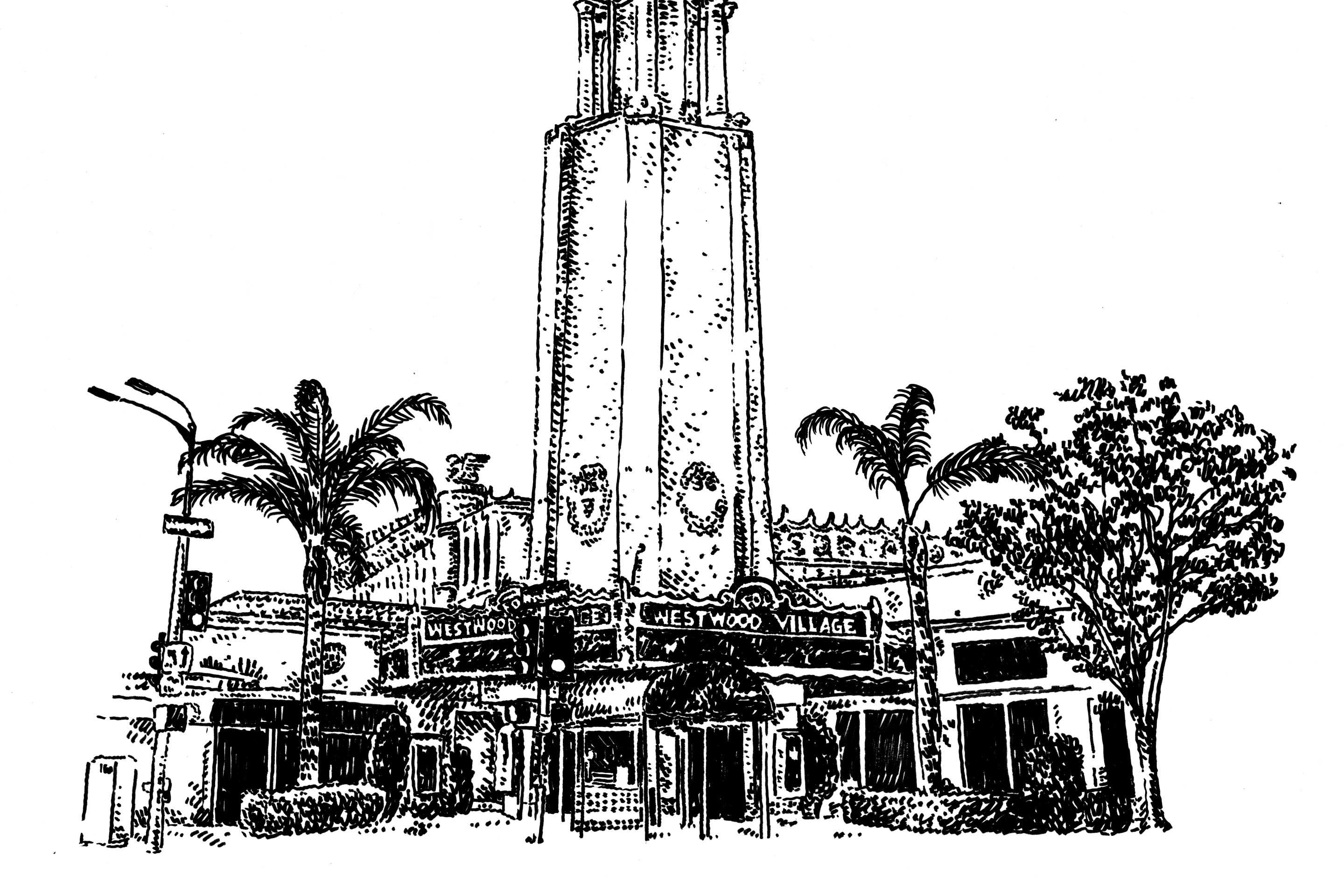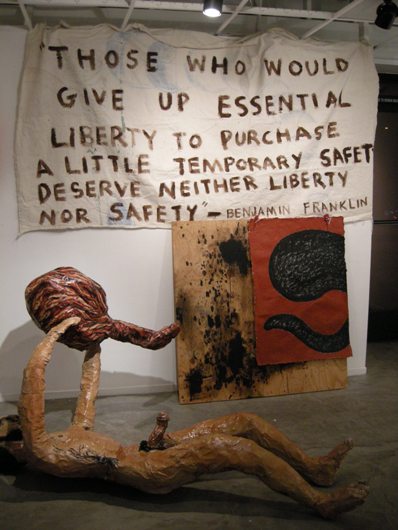
"Albert Camus planted seeds in me. My rocks look like seeds. He taught me you have to question everything." Gronk
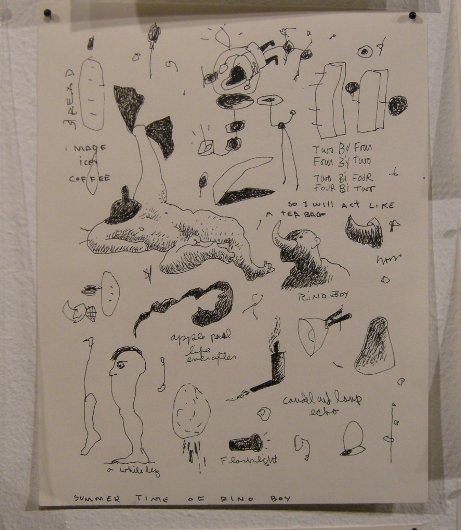
According to our Lady of Wikipedia, Gronk "may refer to an artist, a supervillain in the Marvel Comics universe, a slang term with a variety of meanings, and an alien race from the 2000 AD universe." Oddly enough, this unlikely combination is a perfect metaphor for East LA native Gronk's new show inspired by the works of superauthors in the European Literary universe: Charles Dickens' "A Tale of Two Cities" and Albert Camus' "Le Mythe de Sisyphe."
Quoting from the impassioned introduction to the exhibition by Max Benavidez, author of the book "Gronk," the artist deploys "his urban hieroglyphics to create a pictorial discourse on our anxious moment in history." I believe this was written before Pro-Life/Pro-Gun Sarah Palin entered our not so comic presidential campaign.
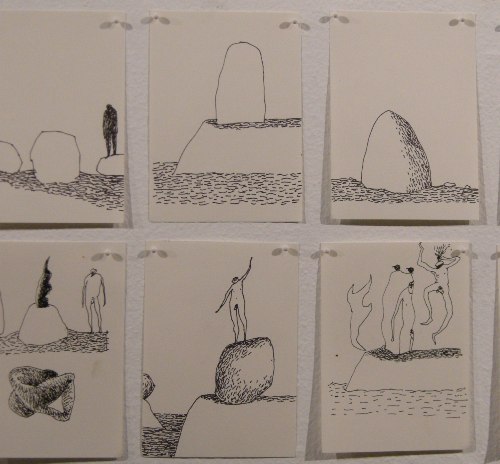
"There is a time when one must choose between contemplation and action. It is called becoming a man." Albert Camus.
My teenage self underlined this sentence in the French copy of "Le Mythe de Sisyphe" I still own. I approached Gronk during the show to tell him at 18 Camus' book never left me. I needed to understand the meaning of my existence on this planet and what role I was to play in it. I was a very young woman wanting to "become a man," wanting to fight for what was right. I identified with outspoken authors like Camus and Arthur Koestler who fought fascism and totalitarian regimes during World War II with both words and action - Camus was a member of the French Resistance fighting the Nazi regime and Koestler joined the British army. It's as if I was hoping World War III would come so that I would have to take sides, test my courage and earn my right to live.
In Greek Mythology, Sisyphe, for having defied the Gods, was condemned to push a huge boulder to the top of a mountain only to see it fall back down and have to start the struggle to the summit again; to the Gods, a struggle with no hope of victory was the worst punishment. Camus investigates what Man can do to alleviate the anxiety of living in an absurd world i.e. a world devoid of meaning for those, like him, who refuse the convenience of a ruling God and who have seen the worst and best of Man during World War II.
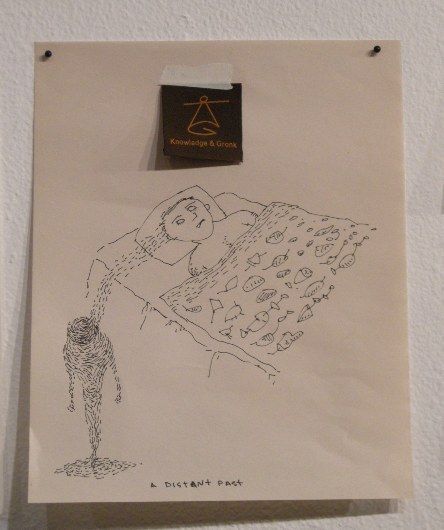
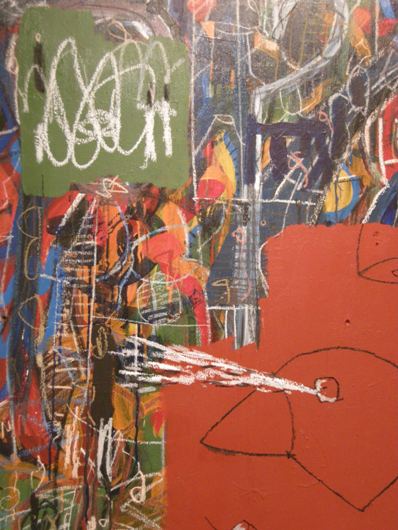
"We also see an amber bird's eye spurting truth or mockery. This is a dream or a nightmare or something supernatural." Max Benavidez
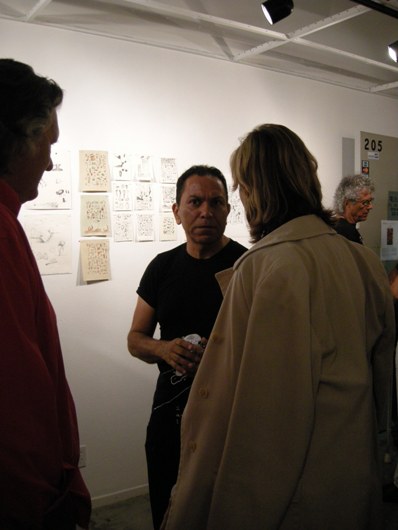
Gronk the artist.
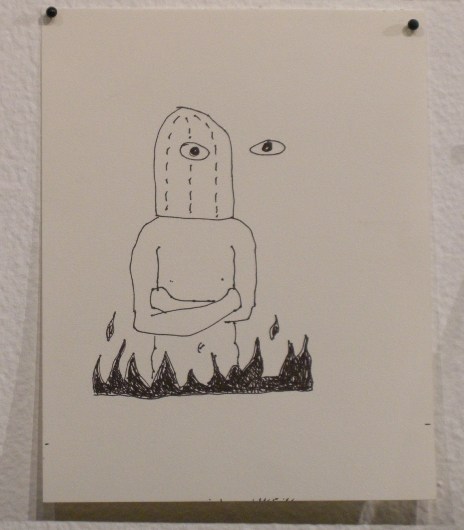
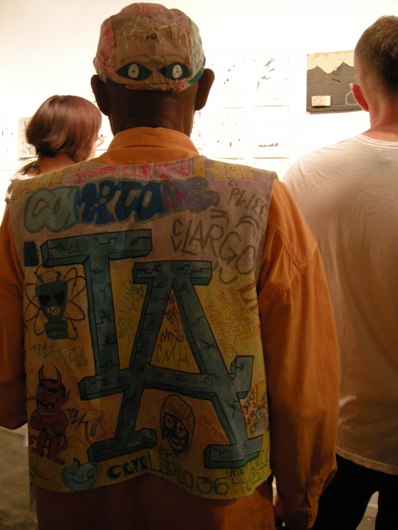
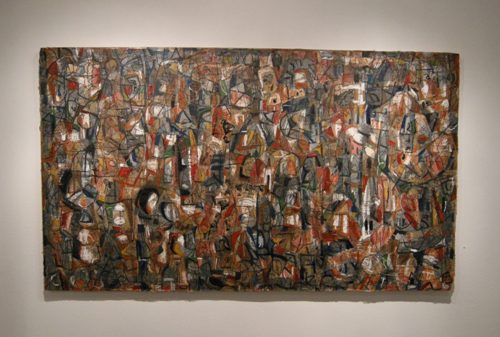
"Peering into Gronk's paintings we see institution materialized at that strange point where beauty and horror intersect. The smudged black and rust shadows seem to call forth our two sides: the divine and the demonic. Gronk's paintings are about our eternal duality and the never-ending struggle for the supremacy of one over the other." Max Benavidez "
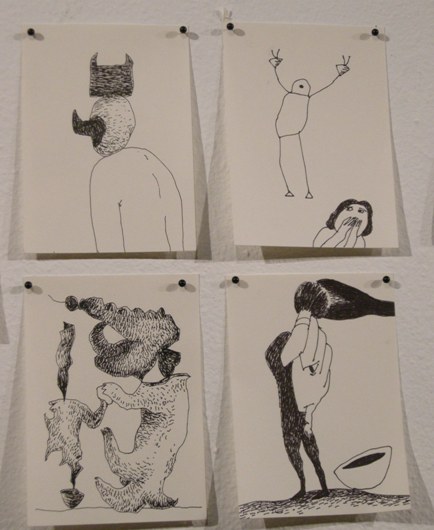
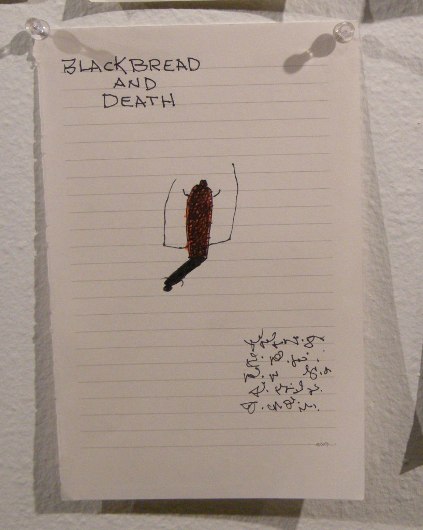
Gronk shared with me he recently re-read Albert Camus' "The Plague," one of Camus' most famous novels published two years into World War II and interpreted widely as a metaphor for the spread of fascism. I wonder if this is what Gronk meant when he wrote in his journal he was "dreaming of a distant past" while working on this show. The anxiety I felt at 18 not knowing the nature of my destiny is similar to the anxiety I feel today in this 2000 American universe where a battle for control is raging. Using malice and conviction, Gronk's characters with their erected penis, dancing limbs and growing tusks reminded me, like Camus, that a just fight, regardless of its outcome, is cause for happiness.
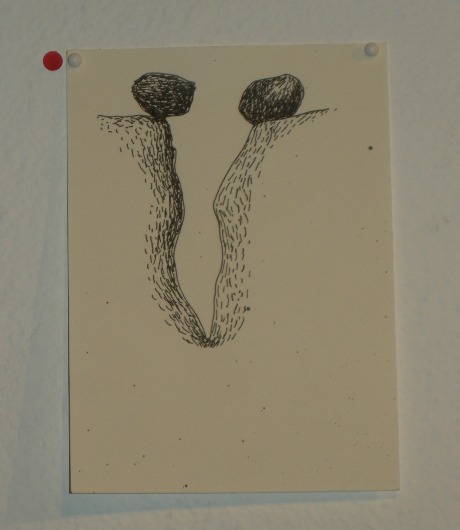
"Je laisse Sisyphe au bas de la montagne! On retrouve toujours son fardeau. Mais Sisyphe enseigne la fidelite superieure qui nie les dieux et souleve les rochers. Lui aussi juge que tout est bien. Cet univers desormais sans maitre ne lui parait ni sterile ni futile. Chacun des grains de cette pierre, chaque eclat mineral de cette montagne pleine de nuit, a lui seul forme un monde. La lutte elle-meme vers les sommets suffit a remplir un coeur d'homme. Il faut imaginer Sisyphe heureux." Albert Camus (1913-1960)
"I leave Sisyphe at the bottom of the mountain! One always finds one's burden. Sisyphe teaches us a superior form of loyalty which denies gods and lifts rocks. He too judges that all is well. This universe now without master is neither sterile nor useless. Each pebble of this rock, each mineral spark of this mountain filled with night, has the power to shape new worlds. The struggle towards the top is enough to fulfill a man's heart. One must picture Sisyphe happy." A.C.
GRONK's "A Tale of 2 Rocks" at L2kontemporary, 990 N. Hill Street, #205, LA, CA 90012. Through October 11. Gallery hours: Thursday-Sunday, 1-6pm.
This story was originally published in The Smiling Spider.
